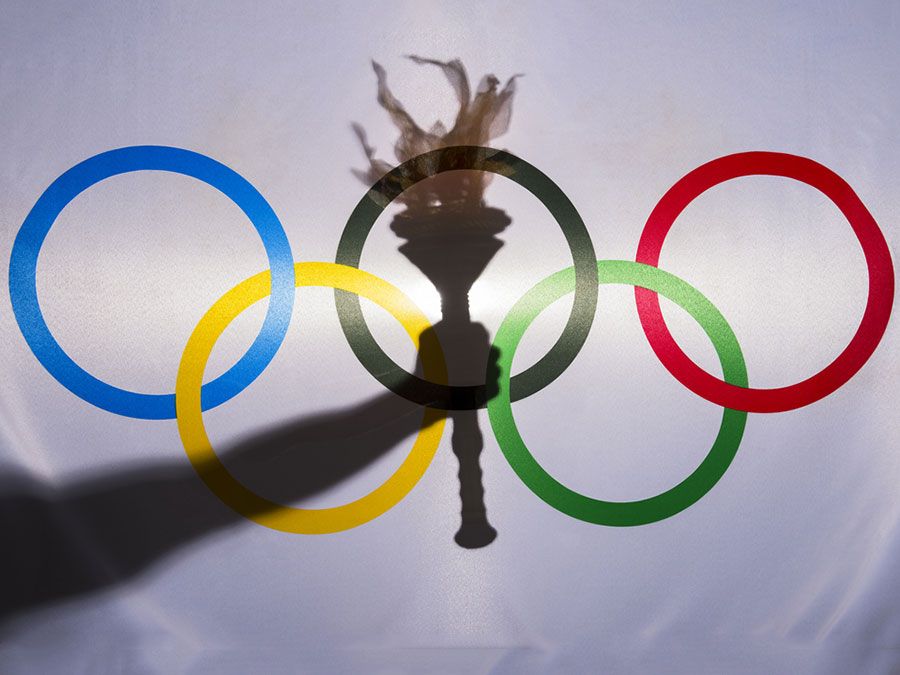The history of the Olympic Games dates back to ancient Greece, where they were held to honor the Greek god Zeus. The first recorded Olympic Games took place in 776 BC in Olympia, Greece. They were initially a local event, featuring only one event – a foot race called the stadion. However, over time, the Games grew in popularity and gradually expanded to include a variety of athletic competitions. Fast forward to the late 19th century when Baron Pierre de Coubertin, a French educator and historian, revived the Olympics with the belief that they could foster international understanding and promote peace. The first modern Olympic Games were held in Athens, Greece, in 1896, and the Games have since seen significant moments such as Jesse Owens challenging racial stereotypes in 1936 and the tragedy of the Munich Massacre in 1972. Other noteworthy moments include Nadia Comaneci achieving perfection in gymnastics in 1976, the Miracle on Ice in 1980, and the Barcelona Olympics coinciding with the fall of the Berlin Wall in 1992. The Beijing Olympics in 2008 showcased China’s emergence as a global power, and the Tokyo Olympics in 2021 faced unprecedented challenges due to the COVID-19 pandemic. These moments highlight the enduring legacy and impact of the Olympic Games throughout history.
1. Ancient Origins of the Olympic Games
The history of the Olympic Games dates back to ancient Greece, where they were held to honor the Greek god Zeus. The first recorded Olympic Games took place in 776 BC in Olympia, Greece. They were initially a local event, featuring only one event – a foot race called the stadion. However, over time, the Games grew in popularity and gradually expanded to include a variety of athletic competitions.
2. Baron Pierre de Coubertin Revives the Modern Olympics
Fast forward to the late 19th century when Baron Pierre de Coubertin, a French educator and historian, became inspired by the idea of reviving the Olympics. He believed that the Games could foster international understanding and promote peace. In 1894, Coubertin founded the International Olympic Committee (IOC) to organize and oversee the modern Olympic Games.
3. The First Modern Olympic Games in Athens, 1896
The first modern Olympic Games were held in Athens, Greece, in 1896. Approximately 280 athletes from 13 nations took part in the Games. The events included athletics, gymnastics, swimming, and weightlifting. The highlight of the Games was the marathon, which symbolized the ancient Greek story of Pheidippides.
4. Jesse Owens Overcomes Racism at the Berlin Olympics, 1936
The 1936 Berlin Olympics became a significant turning point in the history of the Olympic Games. Amidst the backdrop of Adolf Hitler’s Nazi regime, American athlete Jesse Owens shattered racial stereotypes by winning four gold medals, including the prestigious 100-meter sprint. His victories challenged the notion of Aryan supremacy and brought international attention to issues of racial equality.
5. The Munich Massacre, 1972
The 1972 Munich Olympics will always be remembered for the tragic events that unfolded during the Games. Palestinian terrorists belonging to the group Black September stormed the Olympic Village, taking 11 Israeli athletes hostage. The ensuing 20-hour siege resulted in the deaths of all the hostages, as well as five terrorists and a German police officer. The Munich Massacre was a stark reminder of the vulnerability of large-scale international events.
6. Nadia Comaneci Achieves Perfection, 1976
Romanian gymnast Nadia Comaneci captured the world’s attention during the 1976 Montreal Olympics. At the age of just 14, she became the first gymnast in Olympic history to score a perfect 10.0. Comaneci went on to win three gold medals, one silver, and one bronze, becoming one of the most iconic athletes of the Games and revolutionizing the sport of gymnastics.
7. The Miracle on Ice, 1980
The 1980 Winter Olympics in Lake Placid, USA, witnessed one of the greatest upsets in sports history. The underdog American ice hockey team, composed mainly of college students, defeated the heavily favored Soviet Union team in the semifinals. The victory, known as the Miracle on Ice, captivated the nation and symbolized the triumph of determination and teamwork against all odds.
8. The Fall of the Berlin Wall and the Barcelona Olympics, 1992
In 1992, the Barcelona Olympics marked a historic moment as the Games coincided with the fall of the Berlin Wall, symbolizing the end of the Cold War. The event showcased a unified German team competing for the first time since 1964. The Barcelona Olympics became a celebration of political milestones as well as a showcase of extraordinary athletic performances.
9. Beijing Hosts the Summer Olympics, 2008
The 2008 Beijing Olympics represented China’s emergence as a global superpower. China invested heavily in the Games and showcased its economic, technological, and cultural prowess. The event was highlighted by the opening ceremony, which was widely regarded as one of the most extravagant and visually stunning in Olympic history.
10. Tokyo’s Rescheduled Olympics Amidst a Global Pandemic, 2021
The most recent chapter in Olympic history has been the rescheduling of the Tokyo Olympics due to the global COVID-19 pandemic. Originally planned for 2020, the Games faced numerous challenges and controversies. However, with extensive safety measures and protocols in place, the Olympics finally took place in a scaled-down format. While counting the medals and records achieved, it also became a testament to resilience and the unifying spirit of the Olympic Games.
In conclusion, the history of the Olympic Games is filled with significant moments that have shaped both the sporting and global landscape. From their ancient origins in Greece to their modern-day global scale, the Olympics continue to captivate and inspire people worldwide. These ten key moments highlight the enduring legacy and impact of the Olympic Games throughout history.
